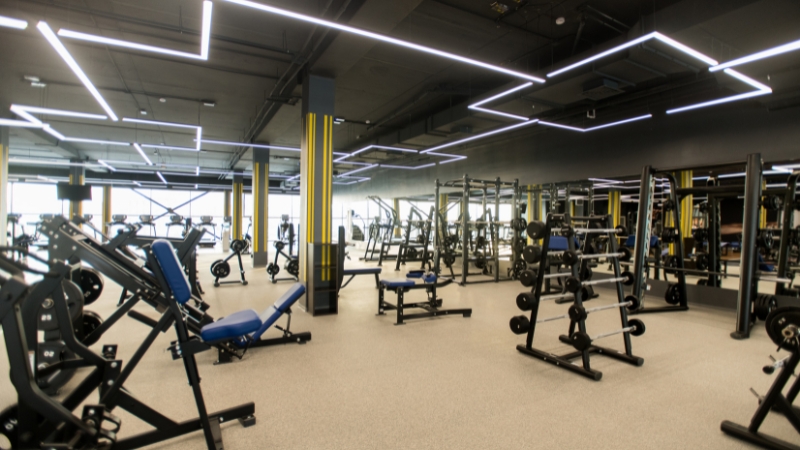
Share Post:
Many people ask me if creatine causes constipation. I hear this question all the time, especially from those starting new supplement routines and wanting to feel their best without side effects.
Creatine is one of the most popular and trusted supplements for building strength and supporting workouts, but some worry it might mess with digestion. Feeling bloated or stuck can be frustrating, and no one wants that slowing them down.
In this guide, I will break down what really happens when you take creatine, why some people might feel constipated, and simple tips to stay comfortable and healthy.
Table of Contents
ToggleWhy Some People Get Constipated on Creatine?

According to Medical News Today, “there is no evidence to support that creatine can cause constipation when a person takes it at the recommended dosage.”
The main reason why some people are facing the issue is dehydration.
Creatine retains water in muscles, which can slow digestion if fluid intake is too low.
Large doses may also overwhelm the gut, leading to digestive issues.
Cheap creatine products with additives can irritate the stomach and worsen symptoms.
How to Prevent Constipation While Taking Creatine?

Preventing constipation is simple: drink enough water, take the right dose, and choose a pure supplement.
Dehydration is the most common reason people experience digestive discomfort while using creatine. Since creatine pulls water into muscles, it’s essential to replenish fluids to keep digestion smooth.
Sticking to the recommended 3-5 grams per day ensures the body absorbs creatine efficiently without overwhelming the digestive system. Low-quality creatine with unnecessary fillers can also contribute to stomach issues, so choosing pure creatine monohydrate from a trusted brand reduces the risk.
A fiber-rich diet helps maintain regular bowel movements. Eating fruits, vegetables, and whole grains can balance digestion and counteract any potential discomfort. Proper hydration, correct dosage, and clean supplements make creatine safe and effective without unwanted side effects.
So, it is not directly related to creatine as a substance. However, not drinking enough water while taking it is the reason why some people links it to digestive problems.
Possible Digestive Side Effects of Creatine
Besides constipation, some users report bloating, stomach discomfort, or diarrhea. These issues usually come from incorrect use and not from creatine itself.
Taking very high doses, especially during the first days, can overload the digestive system and cause temporary bloating. Not drinking enough water can slow digestion and increase discomfort.
Diarrhea is rare but can occur when taking too much creatine at once. The body can only absorb a limited amount at a time, and any excess may cause loose stools.
Can Creatine Cause Bloating?

Creatine can cause bloating, but only during the loading phase when people take high doses of 20–25 grams per day for 5–7 days. The bloating happens because creatine pulls water into muscles, increasing total body water.
Studies show that during this phase, users can gain around 1–2% of their body weight in water retention, which may lead to a feeling of puffiness or stomach discomfort.
The water retention is temporary and usually resolves within a few weeks once the body adjusts to the supplement.
FAQs
Does creatine affect gut bacteria?
There is limited research on creatine’s direct impact on gut bacteria, but it does not seem to negatively affect gut health in healthy individuals. However, some people with sensitive digestion may experience mild stomach discomfort.
Can creatine cause acid reflux or heartburn?
Creatine itself does not cause acid reflux, but some users report mild heartburn when taking it on an empty stomach. Mixing creatine with food or a carbohydrate source can help prevent this.
Is it safe to take creatine if I have IBS or other digestive issues?
Most people with IBS or other digestive conditions can take creatine without issues, but it is best to start with a lower dose and monitor how your body reacts. Choosing a pure, additive-free creatine monohydrate may reduce the risk of irritation.
Does creatine impact kidney function?
Creatine is safe for healthy individuals when taken at recommended doses. However, people with pre-existing kidney conditions should consult a doctor before using it, as excessive amounts may increase strain on the kidneys over time.
Last Words
Creatine is a powerful and safe supplement when used correctly.
It does not cause constipation on its own, but dehydration and poor-quality supplements can lead to digestive issues.
Staying hydrated, using the right dose (3-5g daily), and choosing pure creatine monohydrate will help you avoid any problems.
Related Posts:
- Does Creatine Make You Poop? What You Need to Know
- 10 Safety Tips Every Runner, Walker & Jogger Should Know
- Does Throwing Up Make You Lose Weight or Just Cause Harm?
- Should You Work Out While Pregnant? Here’s What Experts Say
- Should You Lift Weights to Get Lean? What Works for…
- Top 37 Female Fitness Models in 2025 (And Why You…










